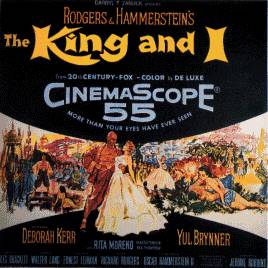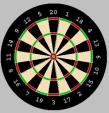
The Genesis
“Magic Formula Investing” certainly sounds like hocus-pocus. If you tell people you are using a Magic Formula, you will be subject to ridicule. So I tend to prefer the acronym “MFI”. Everything is shrtnd nwdys anwy. And it sounds much more mysterious.
I am a numbers guy, through and through. Degree in Math and work with numbers everyday as an actuary. Has been 23 years since I graduated, so I guess you could say I have seen and crunched a lot of numbers. Ok, I am a nerd. I said it. I feel better already!
I first heard about MFI in Smart Money magazine. I don’t typically read Smart Money Magazine, but I was flying home after a little ski trip and decided that reading SMM (see how easy it is?) was appropriate après-ski for a numbers guy.
I still have the magazine somewhere in the basement, but I am too lazy to look for it, so I’ll type off the top of my head. In the magazine they introduce some type of stock screener monthly. Well, the February Screener was the MFI approach as discussed in Joel Greenblatt’s “Little Book that Beat the Market”. His method seemed too sensible to actually work. The point that caught my numbers eye was that JG had claimed to have back-tested his method in an unbiased form and had trounced the market averages with the approach over the past 17 years.
I believe I am a savvy investor. We all do don’t we? Just as we all believe our congressman is better than average. I watch Mad Money (much to the disgust of my wife), I read the Wall Street Journal, I track my portfolio, I subscribe to some newsletters and I have done reasonably well the past 4 years. But to be honest, I have never had a strategy. This MFI idea was intriguing. “Very Interesting” as Artie Johnson would say (as I show my age).
SMM listed the website ( http://www.magicformulainvesting.com/ ) that did all the number crunching and provided a list of stocks that met the criteria of MFI. On February 17th, I created a hypothetical portfolio of 50 stocks from the list with the intention of watching their performance. For those who care, that group of 50 stocks is down (as of May 18th) 0.7% while the benchmark Russell 3000 is down 1.1%. Aha!
Within a week, I actually decided to shell out the $20 and buy the Little Book that Beat the Market from my friendly B&N. Sipping a Starbuck’s Latte, I read his humorous book with analogies about a bubblegum business. While seemingly too good to be true (and most things that seem that way are), JG claimed that his MF had been tested ten ways till Friday. The actual numbers don’t matter, people can buy the book to get further details but the gist of his book was that his approach of picking 25 “value” stocks every year and then holding them for a one year period yielded returns over a 17 year period of about 30% annually. I’d take that. He tested it by year by quarter, so he had 68 different portfolios. He spilt the entire stock market into deciles based on the MF and the annual returns were perfectly correlated. Unless he rigged the data in some fashion (and he “seemed” like too nice a guy to do that) the results were quite convincing and in the author’s words, “quite satisfactory”.
After reading the book, I was gung-ho to put some real money to work. And so I have. It is now about 2 ½ months later and I have 19 stocks. This blog will track my results and my emotional swings and thoughts. Heck, I have always wanted to try this blog thing anyway. Task one: what does “blog” mean? And more importantly, does this make me a “blogger”? More tomorrow.














